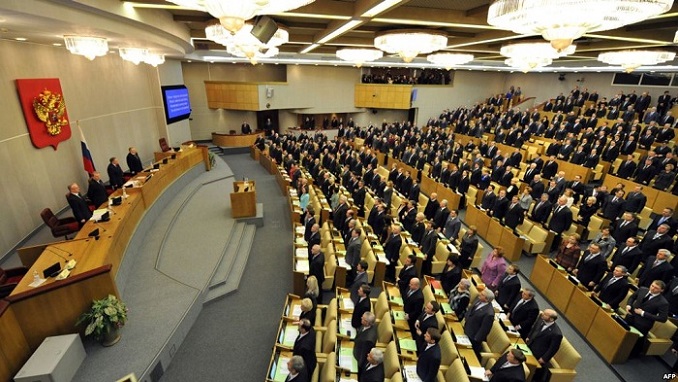According to media reports, the Committee on State Construction and Legislation prepared for the second reading in the State Duma a bill on “digital rights” (Draft No. 424632-7 “On Amendments to Part One, Second and Fourth of the Civil Code of the Russian Federation”).
Several new articles will appear in the Civil Code, but so far the concept of cryptocurrency will not be fixed in it. For the first time the bill was submitted in early 2018. The chairman of the State Duma Vyacheslav Volodin and the head of the Duma committee on state construction and legislation Pavel Krasheninnikov took part in its creation. Lawmakers proposed to fix in the Civil Code “several basic provisions that will allow regulating the market for new objects of economic relations”.
Soon after the birth of the bill passed the first reading, however, later it began to receive comments – in particular, from the Presidential Council on Codification – because of what the Krasheninnikov committee recommended the second reading to make a number of amendments to the bill. The most important of them is that the concept of “digital money” was excluded from the bill.
Thus, while the cryptocurrency will not receive consolidation in civil law. In addition, according to Krasheninnikov, the “Technological issues” will not be addressed in the Civil Code – for this, other “special acts” will be adopted. The deputy noted: “Technology should not be here in principle. We still have the Civil Code here. ”
The draft law introduces a new article 141.1 into the Civil Code, containing the concept of “digital right”, defined as a set of electronic data that certifies rights to objects of civil rights (for example, things), other property, work results, provision of services and exclusive rights.
The turnover of “digital rights” occurs only by making entries in the information system. In fact, the proposed “digital law” of the Civil Code is a phenomenon known in the cryptocurrency sector as the “ token ”, which in the blockchain provides the rights to the owner of the password.
According to Krasheninnikov, securing the concept of “digital law” will allow determining its place in the system of civil rights objects, allowing turnover of such an object, including its sale and purchase, as well as providing protection to citizens and legal entities during transactions with digital rights. For example, on a page on the Internet or in an application on the phone, the conditions for clicking the “OK” button are described, from which it follows that such pressing is sufficient for a full-fledged expression of will. In addition, the user can send an SMS message, which will also be treated as a will.
“All these actions are legally significant in their own right, but a large number of them are also unilateral transactions ,” Krasheninnikov noted.
According to the new norms of the Civil Code, remote expression of a person with his will using “electronic or other similar technical means” will be considered “simple written form of a transaction”, but provided that the devices used in concluding such a “transaction” must allow “to reproduce on tangible medium unchanged the content of the transaction. " Also, you will need to reliably determine the person who has expressed her will. For this you can use, for example, biometric identification.
In addition, the bill introduces changes in the use of “self-fulfilling” transactions – smart contracts . Such smart contracts are not independent transactions, but only a condition on the automatic execution of any civil law contract, whether it be a sale or a contract.
An example of a smart contract is a situation where a client instructs a bank to write off a utility fee in the “auto payment” mode. In order for smart contracts to work, the Civil Code introduces a rule that a transaction may provide for the fulfillment by its parties of obligations “in the event of certain circumstances through the use of information technologies”. That is, the information system itself will perform.
The bill also resolves the issue of legalizing the collection and processing of large arrays of impersonal information ( big data ). To do this, the Civil Code introduces a contract mechanism for the provision of information services, and also expands the concept of a database – “a set of data and information”. At the same time, the provision is that, in accordance with the interests of the parties
Publication date 02/20/2019
Share this material on social networks and leave your opinion in the comments below.

